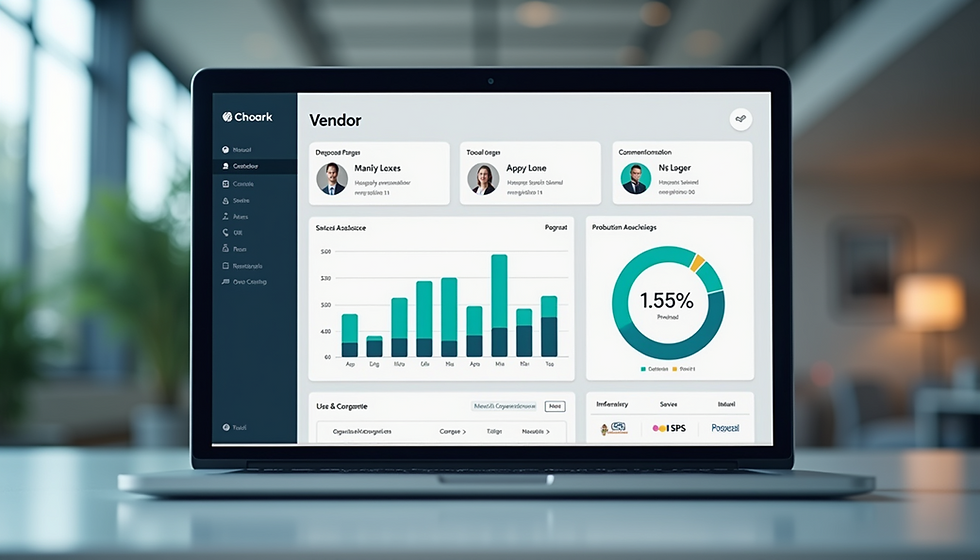The RFP Process: 2025 Government Shutdown
- Joanne Idria Ben, MA, CF ES-M APMP
- Nov 5, 2025
- 3 min read
As the 2025 government shutdown looms, businesses and organizations that depend on government contracts are facing significant uncertainty. The Request for Proposal (RFP) process is vital for securing these contracts; however, it can become challenging amid the turmoil of a shutdown. It is crucial for organizations to navigate this process effectively, ensuring they remain competitive and ready to seize opportunities, even in challenging times.
The RFP process consists of several key stages, including proposal preparation, submission, evaluation and selection. Each of these stages can be affected by a government shutdown, resulting in delays and confusion that could lead to lost business opportunities. This post outlines strategies for successfully managing the RFP process during the upcoming shutdown, providing organizations with practical insights.

Understanding the Impact of a Government Shutdown
A government shutdown occurs when Congress fails to pass funding bills, resulting in the halting of non-essential government services. During such times, many federal agencies can suspend operations. According to a report by the Congressional Research Service, previous shutdowns have resulted in delays in RFP releases of up to 50%. Organizations must recognize these disruptions and plan accordingly.
Businesses should monitor which agencies will be affected and anticipate how their operations may shift. For instance, if the Department of Defense halts operations, it could lead to the postponement of defense contract opportunities. By staying informed, companies can adjust their strategies proactively.
Preparing for the RFP Process
Preparation is essential for successfully navigating the RFP process during a shutdown. Organizations should begin by researching upcoming RFPs and the agencies that will be involved. Identifying key contacts can provide insights into agency priorities and timelines. For example, understanding the Department of Health and Human Services’ focus on COVID-19 response can guide relevant proposal themes.
Proposal teams also need to be well-prepared. This involves training members on the specific requirements of targeted RFPs and ensuring all necessary documents are ready. A well-organized proposal library can save time and improve response quality, making it easier to address urgent requests.
Building Relationships with Key Stakeholders
During a government shutdown, maintaining strong relationships with key stakeholders is even more critical. Engaging with agency representatives and partners can offer valuable insights into the RFP process.
Participating in networking events, industry conferences or even informal lunch meetings can help build these connections. For example, attending a conference hosted by the National Association of Government Contractors can offer opportunities to learn firsthand about agency needs and priorities. These relationships can inform how proposals are tailored to meet agency expectations effectively.

Adapting to Changes in the RFP Timeline
One of the biggest challenges during a government shutdown is the potential for changes in RFP timelines. Agencies may alter deadlines or change submission requirements, which can lead to confusion for organizations attempting to respond.
To adapt, businesses should remain flexible and proactive. Regularly checking agency websites and signing up for newsletters can help organizations stay updated on any changes. One practical approach is to establish a weekly review system to monitor changes actively. Additionally, having a contingency plan can ensure teams are ready to pivot quickly if deadlines shift.
Leveraging Technology for Proposal Management
In today’s digital world, technology can significantly improve the RFP process. Proposal management software can enhance collaboration, track deadlines and efficiently organize documents. Research indicates that companies utilizing dedicated software for proposal management achieve a 20% higher win rate compared to those without it.
Adopting cloud-based tools allows teams to work remotely and access documents from anywhere. This capability is crucial during a shutdown, as it enables continuous work on proposals, even if in-person meetings are impractical.
Focusing on Quality Over Quantity
It may be tempting for organizations to submit as many proposals as possible during a government shutdown, in the hope of increasing their chances of winning a contract. However, the focus must always be on quality over quantity. A well-crafted proposal directly addressing an agency's specific needs is much more likely to succeed than several generic submissions.
Organizations should invest time in thoroughly understanding each RFP's requirements. Tailoring proposals to highlight unique strengths, relevant past performance and innovative solutions can differentiate their submissions. For instance, if a proposal includes data on previous government contract successes, it can significantly enhance competitiveness.
Final Thoughts on Navigating the RFP Process
Successfully navigating the RFP process during the 2025 government shutdown presents unique challenges. Nevertheless, with appropriate strategies, organizations can position themselves for success. By understanding the impact of a shutdown, preparing diligently, fostering strong relationships, adapting to changes, leveraging technology effectively and prioritizing quality, businesses can significantly enhance their chances of winning government contracts.
Adaptive and informed organizations will not only survive the upcoming shutdown but will also thrive in a shifting landscape. By focusing on these strategies, companies can turn potential disruptions into opportunities for success.






Comments